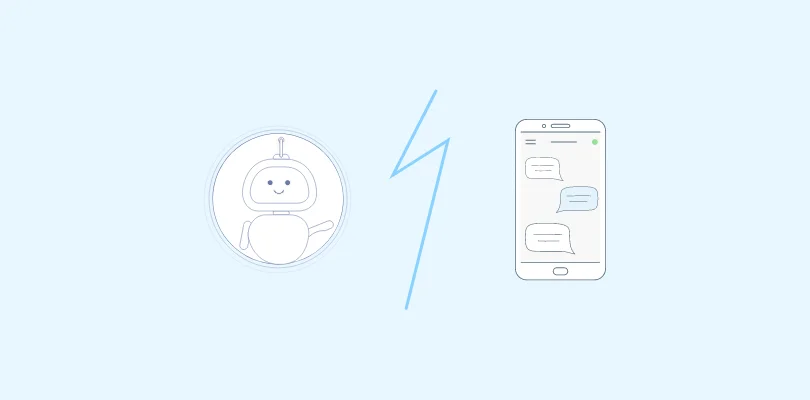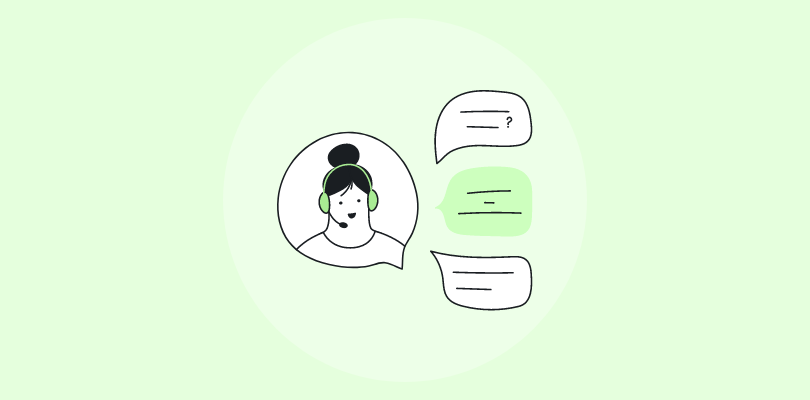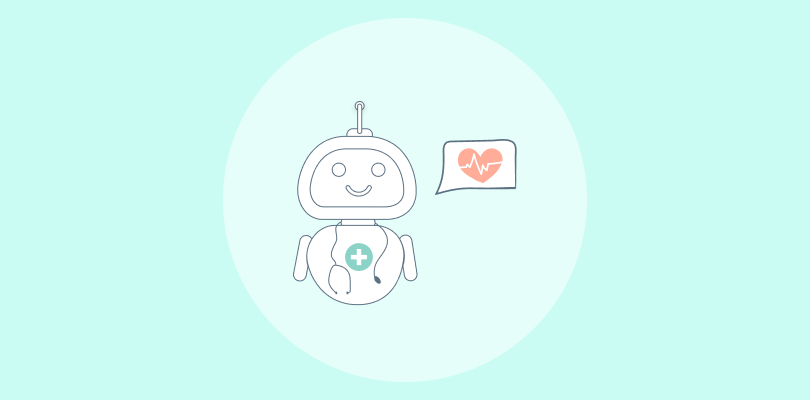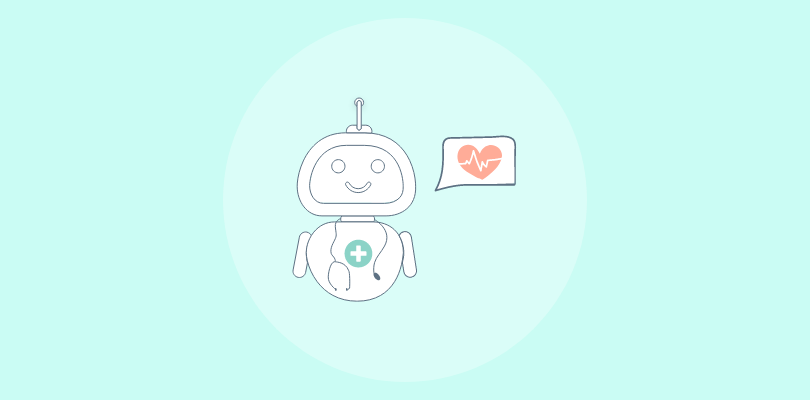
Are you still trying to get your head around the topic of chatbots vs. conversational AI? You’re not alone!
Many businesses struggle to understand the differences between these two technologies. But don’t worry. We’re here to help you untangle the confusion and make an informed decision for your business.
Chatbot messaging apps are expected to increase from 3.5 billion in 2022 to 9.5 billion in 2026, while 28% of the top companies use AI for their marketing. With these figures around, it becomes even more important to understand chatbots and conversational AI in great depth.
While these share some similarities, understanding their differences is crucial for leveraging their full potential. This blog will help you understand:
- The basics of a chatbot
- What is a conversational AI?
- How do they differ from each other?
So, without further ado, let’s get started.
What is a Chatbot?
A chatbot is a computer program or an artificial intelligence (AI) system designed to interact with humans through natural language processing. It is typically used to simulate human-like conversations and provide automated responses to user queries or requests.
A chatbot can be found in various forms, ranging from simple rule-based systems to more sophisticated AI-powered models. Rule-based chatbots follow predefined rules and patterns to generate responses. On the other hand, AI-powered chatbots leverage machine learning techniques, such as natural language processing (NLP) and deep learning, to understand and generate more contextually relevant and human-like responses.
Chatbots can be deployed on different platforms, including websites, messaging apps, voice assistants, and customer support systems. They are used in a wide range of applications, such as customer service, lead generation, appointment booking, virtual assistants, information retrieval, e-commerce, and entertainment.
The primary goal of a chatbot software is to provide efficient and personalized interactions, assist users in finding information or completing tasks, and enhance the overall user experience by enabling quick and convenient communication.
Lets look at an example: Imagine you want to order a pizza online. Instead of filling out a form with your preferences, you can just type something like, “I want a large pepperoni pizza with extra cheese.” A chatbot will understand your request and confirm your order. It may also ask you some follow-up questions, such as “Do you want any drinks or sides?” or “What is your address and phone number?”
What is a Conversational AI?
Conversational AI refers to a technology that enables computers or machines to engage in human-like conversations with users. It combines natural language processing (NLP), machine learning, and other techniques to understand and conversationally respond to human input. Conversational AI systems can be found in chatbots, virtual assistants, and voice-enabled devices.
These systems are designed to comprehend and interpret user queries, generate relevant and context-aware responses, and mimic human-like interactions. They utilize techniques like sentiment analysis, intent recognition, and context tracking to provide accurate and personalized responses. With the help of large language models, conversational AI is even more enhanced since it can go through a process called LLM fine-tuning where you input large data sets to receive accurate and informative responses. Conversational AI aims to deliver a seamless and natural user experience, enabling users to interact with machines using spoken language or text-based communication.
Applications of conversational AI span various industries, including customer service, healthcare, education, e-commerce, and more. It continues to advance, with ongoing research and development driving improvements in understanding user intent, generating more human-like responses, and enhancing overall conversational capabilities.
Lets look at an example: Imagine asking a virtual assistant, “What’s the weather like today?” The conversational AI interprets your query, retrieves current weather data, and responds with a natural language answer like, “Today’s forecast is sunny with a high of 75 degrees.” This seamless interaction showcases the power of conversational AI in our daily lives.
Difference Between Chatbot and Conversational AI
| Aspect | Chatbot | Conversational AI |
|---|---|---|
| Scope | Limited to pre-defined, scripted responses | Broader understanding and ability to handle complex queries |
| Intelligence | Rule-based or simple AI algorithms | Advanced AI algorithms, machine learning, and NLP techniques |
| Flexibility | Rigid structure with fixed conversational flow | Adaptable and dynamic conversational flow |
| Context Awareness | Lacks contextual understanding and memory | Contextually aware, remembers previous interactions |
| Natural Language | Basic understanding of language, may require specific phrasing | Natural language processing, can handle various phrasings |
| Personalization | Limited personalization capabilities | Personalized responses and recommendations |
| Learning Ability | Limited learning ability, requires manual updates | Continuous learning from user interactions and feedback |
| Integration | Primarily used in messaging apps and websites | Integration with various platforms (apps, IoT devices, etc.) |
| Multimodality | Primarily text-based interactions | Supports text, voice, and potentially other modalities |
| Complex Tasks | Struggles with complex tasks, mostly used for FAQs | Can handle complex tasks, transactions, and problem-solving |
| User Experience | Basic user experience with static responses | Enhanced user experience with dynamic, natural interactions |
So, Which Solution is Better Suited for Your Business?
The solution better suited for your business depends on your goals, budget, and use cases.
Chatbots are cheaper and easier to implement but have limited capabilities and can only handle simple and predictable scenarios.
On the other hand, conversational AI is more expensive and complex to implement. However, it can provide a more engaging and satisfying customer experience and handle complex and dynamic scenarios.
Some factors to consider when choosing between chatbots and conversational AI are:
- The level of complexity and variability of the customer queries or requests you receive
- The level of personalization and customization required for the customer interactions
- The level of integration and compatibility with other systems and platforms
- The level of scalability and flexibility required for the business growth
Chatbots are generally more suitable for businesses that need a quick and easy solution to automate repetitive and low-value tasks, such as FAQs, appointment bookings, feedback collection, etc.
Conversational AI is more suitable for businesses that need a more sophisticated and comprehensive solution to automate high-value and strategic tasks, such as lead generation, sales conversion, or customer retention.
Also Read: Top 10 Free AI Chatbot Software in 2024 [With Pros & Cons]
Get the Power of Conversational AI Within Your Chatbot!
While chatbots are limited to performing specific functions within a narrow domain, conversational AI can handle a more comprehensive range of tasks and can be applied to a broader range of applications. Conversational AI is fundamentally better at completing most jobs once it is set up and taught to the system.
Though these are different in terms of capabilities, modern conversational chatbots are equipped with AI technology that helps you create an engaging and fulfilling customer experience.
If you are looking for a platform that offers artificially intelligent chatbots to your customers, ProProfs Chat can be your bot-to-go. With its NLP and machine learning capabilities, this tool lets you automate your customer support and even route chats to human agents when needed.
So, why wait? Get started today.
FREE. All Features. FOREVER!
Try our Forever FREE account with all premium features!







